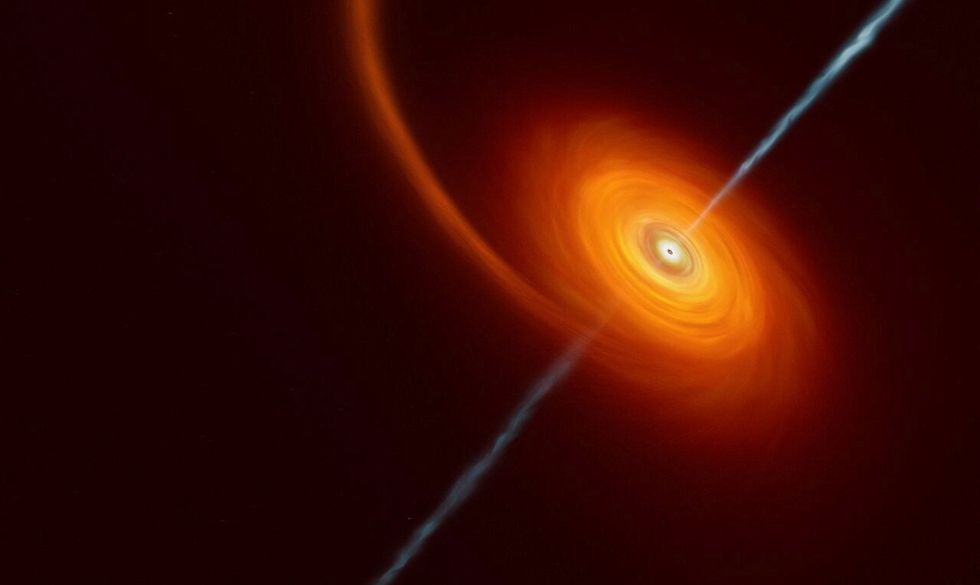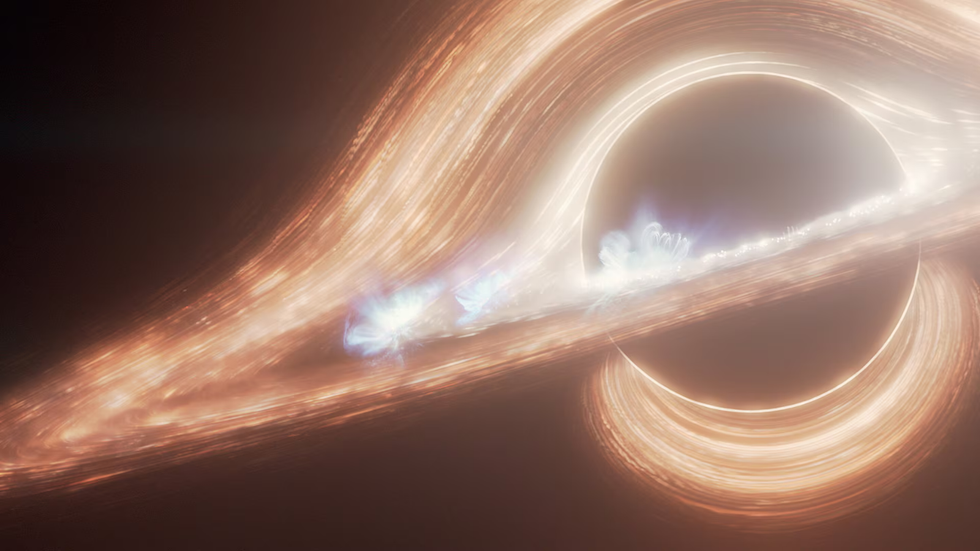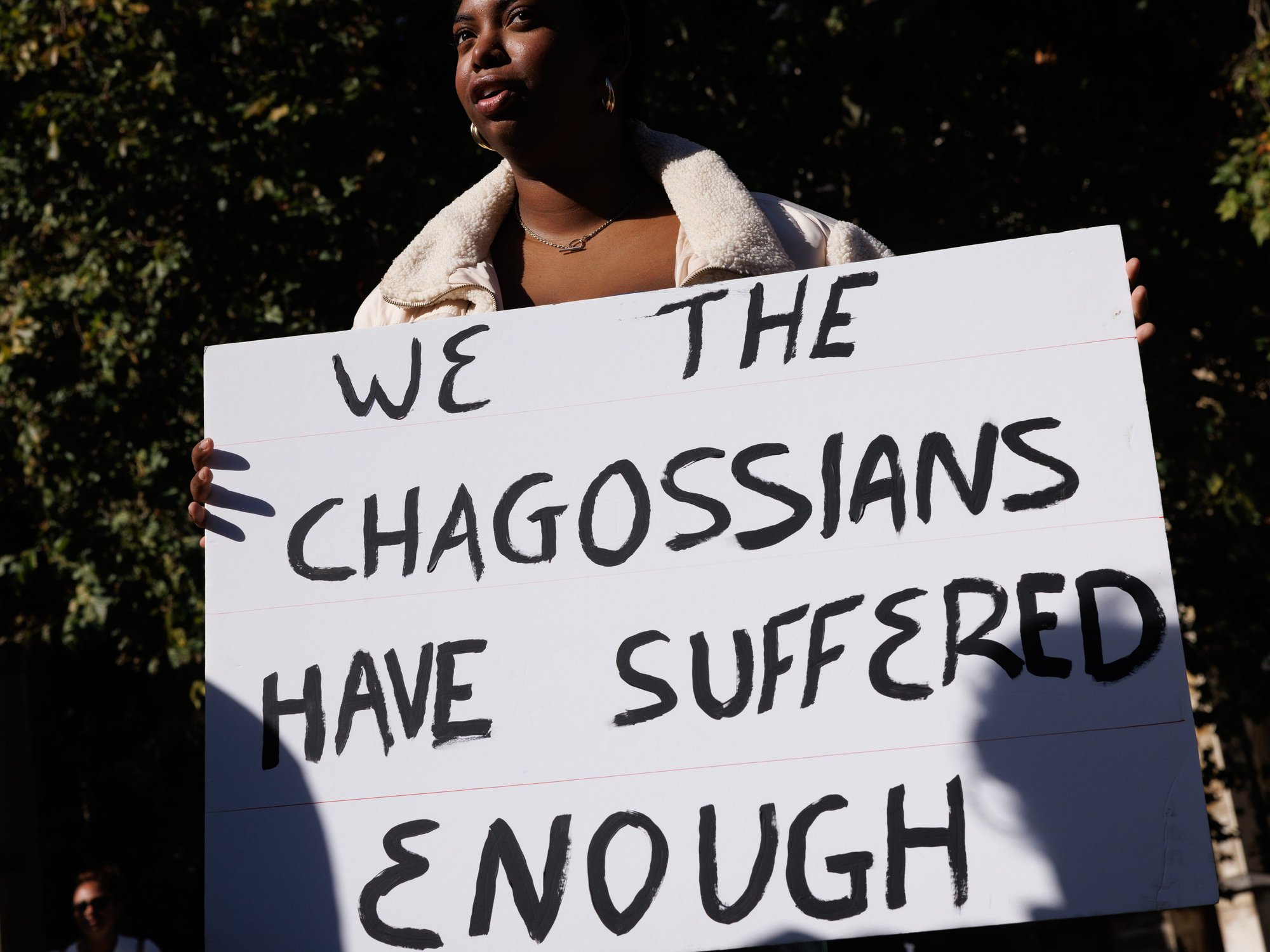Space breakthrough as scientists claim Big Bang theory is WRONG

WATCH: Kosmos-482 Out-of-control spaceship crashes into Earth after over 50 years in space
|GB NEWS

A UK-based team believe their research could rewrite how we understand the early universe
Don't Miss
Most Read
A team of UK-based scientists have claimed the Big Bang theory is not true in a major challenge to the understandings of the beginning of the universe.
Researchers at the University of Portsmouth have proposed that our universe exists within a black hole.
The international team, led by the university's Institute of Cosmology and Gravitation, suggests the universe formed through a massive gravitational collapse that created a black hole.
This "Black Hole Universe" theory contradicts the widely accepted notion, first put forward in the 1930s, that everything emerged from a single point of infinite density.

The 'Black Hole Universe' theory contradicts widely-accepted science
|REUTERS
The Big Bang concept was first proposed by Belgian theoretical physicist Georges Lemaitre, who suggested the universe emerged from a "primeval atom".
But the new theory proposes that matter within the black hole was compressed to extreme density before rebounding outward like a compressed spring.
This bounce created our expanding universe, suggesting cosmic creation does not come from nothing, but rather a continuation of cycles.
Professor Enrique Gaztanaga said: "We've shown that gravitational collapse does not have to end in a singularity and found that a collapsing cloud of matter can reach a high-density state and then bounce, rebounding outward into a new expanding phase."
MORE BLACK HOLE BREAKTHROUGHS:
- Mysterious black hole leaves scientists baffled after it starts flashing unexpectedly
- Astronomers left stunned after uncovering 'stealthy' gigantic black hole 'hiding in galaxy next door'
- Nasa telescope discovers oldest ever black hole and scientists think it may be eating up a galaxy at an unusually rapid pace

Images from the James Webb Telescope in March revealed an unusual distribution of early galaxies - which researchers believe lends support to their theory
|REUTERS
The theory suggests our universe's edge is the black hole's event horizon, preventing us from observing the parent universe beyond.
The Black Hole Universe model successfully reconciles general relativity with quantum physics, unlike the traditional Big Bang theory.
Classical physics underpinning the Big Bang has long butted up against quantum mechanics, which limits how much matter can compress.
Prof Gaztanaga noted: "In contrast to the famous singularity theorems by Penrose and Hawking, which assume that matter can be compressed indefinitely, we rely on the fact that quantum physics places fundamental limits on how much matter can be compressed."
He added: "We are not special. We are not witnessing the birth of everything from nothing, but rather the continuation of a cosmic cycle - one shaped by gravity, quantum mechanics, and the deep interconnections between them."
LATEST SPACE STORIES FROM GB NEWS:

The Black Hole Universe model successfully reconciles general relativity with quantum physics
|REUTERS
Recent observations from the James Webb Space Telescope have provided support for the theory.
Images from March revealed an unusual distribution of early galaxies, with two-thirds spinning clockwise and one-third anti-clockwise.
This imbalance suggests the universe was born rotating, which would occur if created inside a black hole.
Lior Shamir, an associate professor at Kansas State University, said: "That explanation agrees with theories such as black hole cosmology, which postulates that the entire universe is the interior of a black hole."
Scientists believe the model could explain other cosmic mysteries, including supermassive black hole origins and dark matter's nature.
The research was published in Physical Review D.










